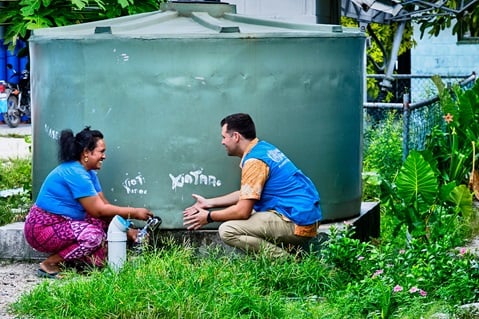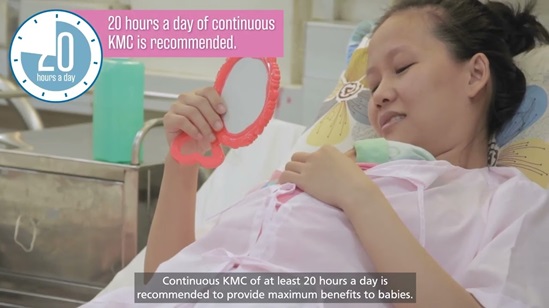A nurse is counseling a mother on appropriate care practices for newborns in Malaysia.
Protecting, supporting and promoting breastfeeding
Protecting, promoting and supporting breastfeeding will save more lives of babies and children than any other single preventive intervention. Globally, exclusive and continued breastfeeding could help prevent 13% of deaths among children under five years old. Breastfed children have fewer childhood infections, fewer chronic diseases, 3–5 extra points of IQ, higher earning potential, more opportunities to prioritize education, and healthier mothers. Breastfeeding reduces burdens on society in terms of health spending, hospitalizations and absenteeism. It also saves families money because it obviates the need for commercial substitutes.
The World Health Organization recommends that:
- Breastfeeding be initiated within one hour of birth;
- Infants feed on nothing but breast milk for the first six months of life;
- Infants continue breastfeeding until at least the age of two; and
- Infants be introduced to adequate, safe and complementary foods beginning at six months.
Sadly, the marketing of breast-milk substitutes and inappropriate complementary foods leads to lower rates of exclusive breastfeeding and suboptimal breastfeeding. This puts children’s health at risk, both in the short- and long-term.
WHO provides guidance to Member States on eliminating exposure of the general public to marketing of breast-milk substitutes and the inappropriate promotion of foods for infants and young children through implementing the International Code of Marketing of Breast-milk Substitutes in the Western Pacific Region. In addition, WHO works with partners such as the International Labor Organization on maternity protection so that mothers can be with their infants to breastfeed, and with UNICEF on a Baby-Friendly Hospital Initiative to help new mothers initiate breastfeeding after delivery.









